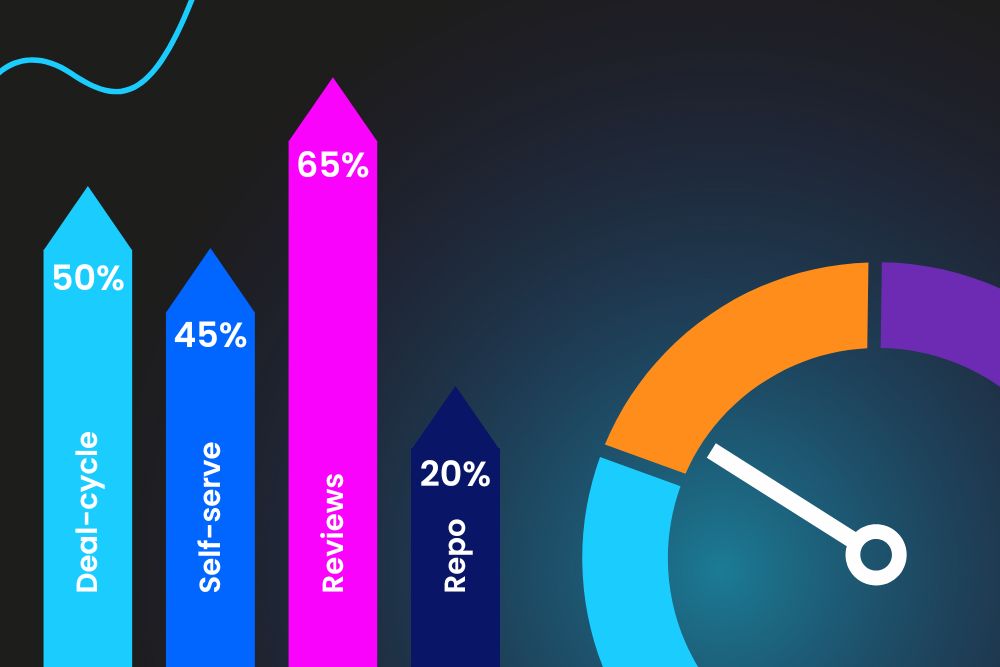In conversation with Summize's Chris Stroud: What do lawyers and UX researchers have in common?
We sat down with Chris Stroud, expert sales professional and a recent addition to the Summize team as Strategic Account Director to learn about his experiences and the common challenges he's identified between UX researchers and the legal profession.
March 12, 2025
November 25, 2025
We sat down with Chris Stroud, expert sales professional and a recent addition to the Summize team as Strategic Account Director.
Chris is no stranger to working with businesses, understanding their challenges and helping them find a software solution to improve their processes. With 13 years of experience in tech sales, he has developed the skills to identify business challenges and demonstrate how the right tech stack can create a more efficient way of working.
Chris' previous sales experience in user testing software gave him a deep insight into the role and industry of UX researchers. After just a few weeks at Summize and learning about our software and the users it helps, he has already noticed similarities between UX researchers and in-house lawyers.
We sat down with Chris to learn more about the commonalities and to explore common technology trends between the two industries.
In conversation with Chris
Chris, tell us a bit more about UX researchers and their relationship with technology
UX Research teams are the insurance policy in making any front-end design and product decisions with any digital product, like an app or website. The idea is that new digital products, designs, or even concepts should originate from or be run past a team of people who are constantly talking to real customers. By this, I mean they would bring real customers into a fake lounge, give them a prototype, film them, and then ask them to interact in some way or another. Ethnographic research was even slower and more costly; basically, a Researcher is flown out to spend 1:1 time with a customer. Then remote testing tools enabled almost everything to be done faster, easier, and for far less cost. The next step for the industry is ubiquity, to make gathering insights from users easy enough for anyone across the organisation to do it quickly.
So you might think this puts UX Researchers out of a job? Nope, it just changes their focus and elevates their position in a business to do all the strategic, high-impact things they didn’t have time for in the past.
Many would think that the research and legal industry is completely different. Is this not the case?
Not so different in how they are perceived and the challenges they face.
The perception is:
- They say “No” a lot. Both to having enough time to work on projects and to the ideas from colleagues outside of their team.
- They are slow, they may have SLAs. It takes time to understand the problem, interview customers, and then share findings with stakeholders.
- They are seen as a cost centre most of the time.
- Business would still happen without them.
There are some common challenges across both:
- They are often brought in too late to help fix a broken product rather than in preventing the issue in the first place.
- Stakeholders want insight, advice, and results yesterday.
- Not able to show the value of their department even when they are performing well.
- Stuck answering a large number of tactical questions with no time to spend on guiding the business with strategic research.
- Liable to budget cuts, headcount freezes, and reductions.
Sound familiar to any in-house lawyers reading this?
Okay, so what does this all mean for both industries?
The catalyst for change has been Covid, both because UX Researchers had to go online to talk to customers and because of the huge acceleration in digital transformation during that time. It became vital that customer insights matched the speed of the business, and this need was met with improvements in technology and the proliferation of UX tools.
Successful UX Research leaders have changed their practice, their processes, and the technology they use to support the businesses they serve.
- Democratising the practice of research is the only way to serve the tidal wave of requests from various and growing teams. Basically, this involves using technology to automate, simplify, and speed up many of the basic tasks of a UX Researcher so other adjacent teams like Design and Product can complete simple research themselves without the help of the UX Researcher. This has meant the role of the Researcher has moved from librarian to enabler.
- Focusing on strategic high-impact problems and questions to support senior leaders and the board. Now the research team (in theory) spends less time on the basic tasks they can use their expertise on problems only they can solve.
- Learning to speak the language of the business and show how Researcher work will support KPIs, OKRs, and company objectives. It takes room to breathe and time to build relationships for a Research leader to do this well.
- Sharing insights across the wider organisation to reduce repetition of research and increase the impact of insights gained. Implementing an effective repository for insights with easy access for business stakeholders has made this much easier in recent months.
- Becoming experts in how AI can support their business unit. This doesn’t mean being an expert in AI per se but having the time, creativity, and responsibility to explore and implement good practices.
Doesn’t this sound strikingly similar to the changes most in-house legal teams are looking to make in 2025? Most in-house legal teams seem to be early in their ‘digital transformation’ journey where the gains are greatest but the fear of change also looms large. The key to getting it right is choosing the right technology and more importantly the right expertise in an implementation partner.
My personal contribution to helping in-house legal teams to be faster, better, and more impactful in their businesses is just beginning. It’s going to be a year of great change for us all and I for one am excited!
Learn more about Summize
Chris is a recent addition to the Summize team and we're not stopping there! Summize is expanding, both in our US and UK teams. Take a look at our open job roles and learn what it's like to work at Summize.
Discover even more!
Explore more about contracting and CLM in our ultimate contract guides








